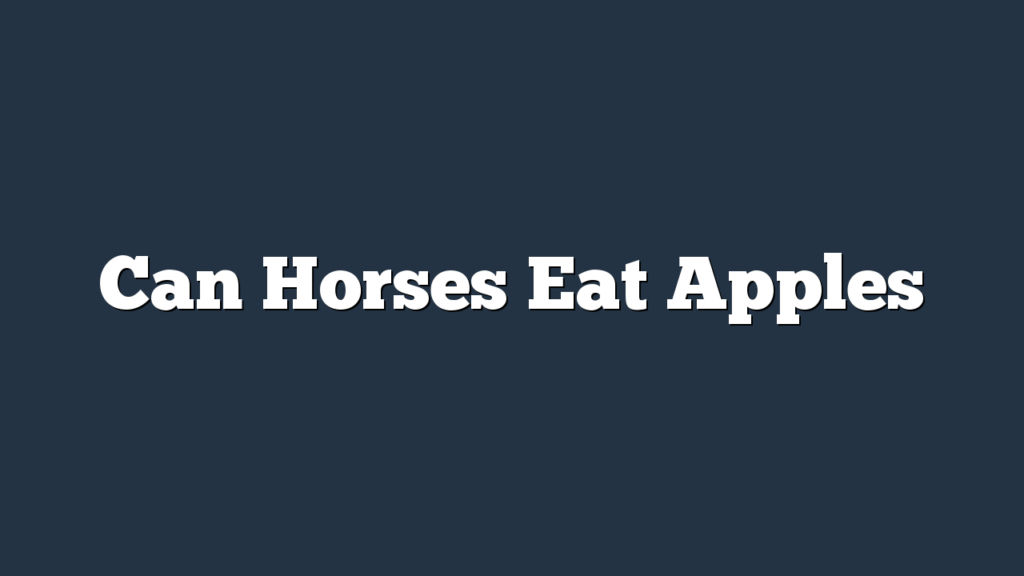Are you wondering if horses can enjoy a tasty treat of peanut butter? Well, the answer might surprise you.
In this article, we will explore the nutritional value of peanut butter for horses, potential health benefits, and important considerations before feeding it to your equine friend.
You’ll also discover safe dosage and feeding methods, as well as alternatives to peanut butter for those looking for variety in their horse’s treats.
Get ready to uncover the peanut butter possibilities for your four-legged companion!
Nutritional Value of Peanut Butter for Horses
While peanut butter can be a tasty treat for you, it’s important to consider the nutritional value it provides for your horse. When it comes to horses, peanut butter can be a beneficial addition to their diet if used in moderation. It’s a good source of protein, healthy fats, and essential vitamins and minerals. However, before introducing peanut butter to your horse’s diet, it’s crucial to be aware of potential allergies. Just like humans, horses can develop allergies to certain foods, including peanuts. Therefore, it’s recommended to start with small amounts and monitor your horse for any adverse reactions.
In addition to being a nutritional snack, peanut butter can also be used as a training tool for horses. Its creamy texture and strong aroma make it highly appealing to horses, making it an excellent incentive during training sessions. You can use peanut butter to reward your horse for completing tasks or to encourage them to try new exercises. However, it’s important to use peanut butter in moderation and not rely solely on it as a training tool. Remember to balance your horse’s diet with other nutritious foods and consult with a veterinarian or equine nutritionist to ensure that peanut butter fits into your horse’s overall dietary plan.
Potential Health Benefits of Peanut Butter for Horses
Peanut butter can provide various health benefits for your horse when incorporated into their diet. Here are some reasons why you should consider adding peanut butter to your equine friend’s meals:
- High in protein: Peanut butter is a great source of protein, which is essential for muscle development and repair in horses. It can help support their overall growth and strength.
- Rich in healthy fats: Peanut butter contains healthy fats that can provide your horse with a concentrated source of energy. These fats also help maintain a shiny coat and healthy skin.
- Good source of vitamins and minerals: Peanut butter is packed with vitamins and minerals like vitamin E, niacin, and magnesium. These nutrients contribute to a healthy immune system and proper functioning of various bodily processes.
- Potential allergy relief: Surprisingly, peanut butter can help alleviate potential allergies in horses. The high levels of magnesium and vitamin E found in peanut butter have been known to reduce allergic reactions.
- Promotes healthy digestion: Despite concerns about potential digestive issues, peanut butter can actually aid digestion in horses. The natural oils in peanut butter can lubricate the digestive tract, promoting smooth bowel movements and reducing the risk of colic.
Incorporating peanut butter into your horse’s diet can offer several health benefits, including improved muscle development, enhanced energy levels, and potential allergy relief. Just be sure to introduce it gradually and monitor your horse’s response to avoid any potential digestive issues.
Considerations Before Feeding Peanut Butter to Horses
Before adding peanut butter to your horse’s diet, it’s important to consider several factors. One major consideration is the presence of peanut allergies in horses. Just like humans, horses can develop allergies to certain foods, including peanuts. If your horse has a known peanut allergy, feeding them peanut butter could lead to an allergic reaction, which can range from mild symptoms like itching and hives to more severe symptoms like difficulty breathing and swelling. It’s crucial to consult with your veterinarian before introducing peanut butter into your horse’s diet to ensure they aren’t allergic.
Another factor to consider is the potential risks of feeding peanut butter to horses. Peanut butter is high in fat, and while fat is an important part of a horse’s diet, it should be provided in the correct balance with other nutrients. Feeding excessive amounts of peanut butter can lead to weight gain, digestive issues, and even metabolic disorders. Additionally, peanut butter often contains added sugars, salt, and other ingredients that may not be suitable for horses. It’s essential to read the labels carefully and choose a peanut butter brand that’s free from harmful additives.
Safe Dosage and Methods of Feeding Peanut Butter to Horses
To safely feed peanut butter to your horse, it’s important to consider the appropriate dosage and feeding methods. Here are some key points to keep in mind when feeding peanut butter to your horse:
- Start with small amounts: Begin by offering your horse a small amount of peanut butter, such as a teaspoon, to see how they react to it.
- Watch for allergies: Keep an eye out for any signs of peanut butter allergies in horses, such as hives, difficulty breathing, or swelling. If your horse shows any allergic reactions, discontinue feeding peanut butter immediately and consult with a veterinarian.
- Avoid excessive quantities: While peanut butter can be a tasty treat for horses, it shouldn’t be fed in large quantities. Excessive consumption may lead to digestive issues or weight gain.
- Choose the right type: Opt for natural peanut butter that doesn’t contain artificial additives, sweeteners, or xylitol, as these can be harmful to horses.
- Use caution with medication: If you need to administer medication to your horse, consult with your veterinarian before mixing it with peanut butter. Some medications may not be compatible with peanut butter, so it’s important to get professional advice.
Alternatives to Peanut Butter for Equine Treats
If your horse has a peanut butter allergy or you’re looking for alternative treats, there are several options available.
Homemade horse treats can be a great alternative to peanut butter for your equine friend. These treats can be made with ingredients that are safe and beneficial for horses. One popular homemade treat recipe involves mixing oats, carrots, apples, and molasses together and shaping them into small bite-sized pieces. Horses tend to enjoy the combination of flavors and textures in these treats.
Another alternative to peanut butter for horses is using other nut butters such as almond butter or sunflower seed butter. These nut butters can provide a similar creamy texture and flavor that horses enjoy. However, it’s important to check for any potential allergies or sensitivities your horse may have to these alternative nut butters before offering them as treats.
Additionally, fruits such as bananas and strawberries can be a healthy and tasty option for horses. These fruits can be sliced into small pieces and given as treats. Just make sure to remove any seeds or pits that may be present.
Frequently Asked Questions
Can Horses Have Allergies or Adverse Reactions to Peanut Butter?
Yes, horses can have allergies or adverse reactions to peanut butter. It’s important to consider peanut butter alternatives that are safe for them. While peanut butter may have some benefits for horses, it’s crucial to prioritize their health and well-being.
Is It Safe to Feed Peanut Butter to Horses With Medical Conditions Such as Insulin Resistance or Laminitis?
It’s important to consider your horse’s medical conditions before feeding them peanut butter. Instead, explore peanut butter alternatives for horses or use peanut butter as an occasional treat in moderation.
Can Horses Develop Weight Gain or Obesity Issues From Consuming Peanut Butter?
Yes, horses can develop weight gain or obesity issues from consuming peanut butter. It’s important to consider the horse’s metabolism and the nutritional benefits of peanut butter when deciding to include it in their diet.
Are There Any Potential Digestive Issues Associated With Feeding Peanut Butter to Horses?
Feeding horses peanut butter may potentially cause digestive issues. Consider alternative nut butter options, which may provide potential health benefits without the risk.
What Are the Risks of Feeding Peanut Butter to Horses in Terms of Choking or Getting Stuck in Their Throat?
Choking risks associated with feeding horses peanut butter include the possibility of it getting stuck in their throat. Additionally, horses can have allergies and adverse reactions to peanut butter, so it’s important to be cautious.
Conclusion
In conclusion, while peanut butter may be enjoyed by some horses as a treat, it should be fed in moderation and with caution.
Peanut butter can provide some nutritional value and potential health benefits, but it’s important to consider the horse’s dietary needs and any allergies or sensitivities they may have.
It’s always best to consult with a veterinarian before introducing peanut butter or any new food into a horse’s diet.



